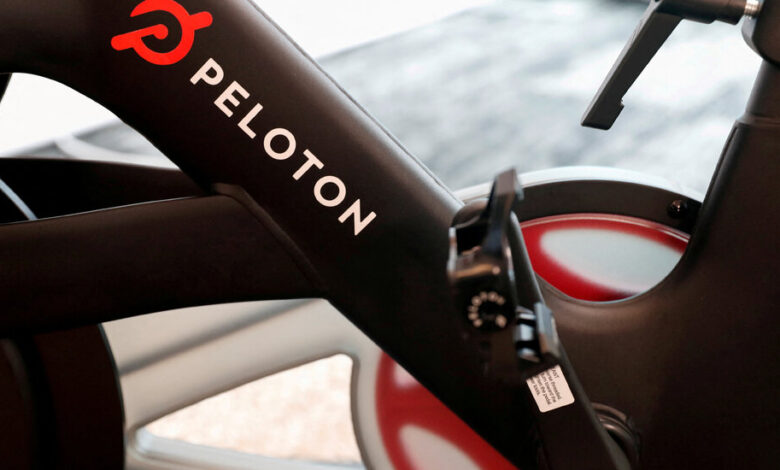Peloton, struggling to sell its gear, reports a $1.2 billion loss.

Peloton, the exercise bike company that saw huge success in the early days of the pandemic only to flounder as sales slowed, reported a $1.2 billion quarterly loss on Thursday as it struggled to sell excess inventory.
Revenue in the second quarter fell 28 percent, to $679 million, from the same period a year ago, Peloton said in a report. The loss in the quarter, which included $415 million in restructuring charges, was much wider than the $313 million loss in the same quarter last year. The company has lost money for six straight quarters.
“Naysayers” about the company’s strategy, according to the company’s chief executive, Barry McCarthy, “see a melting pot of declining revenue, negative gross margin, and deeper operating losses,” he said in a statement. But Mr. McCarthy said he saw “significant progress driving our comeback and Peloton’s long-term resilience.”
The company ended the quarter with 2.97 million subscriptions, up 27 percent from the year before. (This was, however, roughly flat from the previous quarter.)
Peloton’s shares fell 16 percent in premarket trading.
Once heralded as a pandemic darling, Peloton has faced challenges as gyms have reopened and demand for its products has waned. On Thursday, the company announced a deal to sell exercise equipment, accessories and apparel on Amazon’s U.S. website.
As part of Mr. McCarthy’s turnaround strategy, Peloton said earlier this month that it was taking drastic measures to cut costs, including laying off nearly 800 workers, eliminating warehouses and closing retail locations across North America.
The company also said that it would be raising prices on some of its fitness products, increasing the cost of its Bike+ model $500 and its Tread model $800. Last month, the company announced that it would stop making its own bikes and instead would outsource all production to an overseas company.
In February, Mr. McCarthy took over as chief executive for John Foley, a co-founder of the company. That month, the company laid off 20 percent of its work force, some 2,800 workers. Peloton’s chief financial officer said at the time that the company wanted to save at least $800 million annually.
Peloton has also tried to address problems with public perception of its fitness equipment.
In May 2021, after initially saying that its treadmills were safe, Peloton recalled its Tread+ and Tread machines after injuries and the death of a child were linked to the products.
In October of 2020, after reports of more than 100 pedals breaking and 16 injuries, Peloton recalled clip-in pedals on about 27,000 bikes sold from July 2013 to May 2016.
And negative television portrayals of Peloton products, including on the “Sex and the City” reboot “And Just Like That” and “Billions,” caused its stock price to dip. Peloton’s stock has lost about two-thirds of its value this year.



